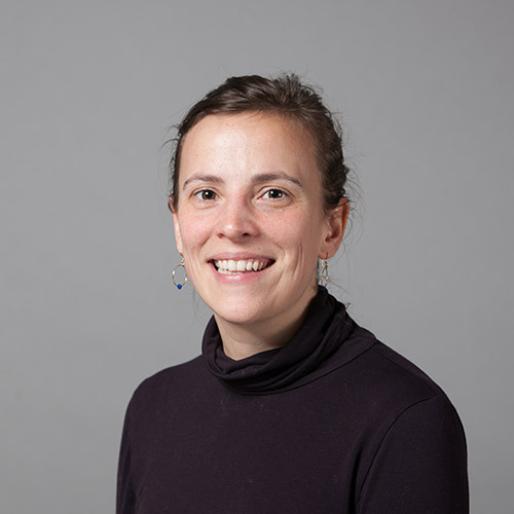The big picture: using wildflower strips for pest control
Reseeding permanent pasture initially contributes to climate change and doesn’t increase yields beyond the first year, according to new research.
The study by Rothamsted Research, examined the impact of reseeding on carbon and nitrogen levels and showed the only benefits of reseeding with a high sugar grass are if clover is also sown, as it reduces the economic and environmental costs of fertiliser.
These findings demonstrate how careful consideration is required before reseeding pasture, says lead author Dr Alison Carswell.
“Nitrogen use is markedly reduced, and the soil releases carbon during reseeding years, with no substantial improvement in grass yields compared to the permanent pasture in the following years.
“The process of reseeding is costly, both environmentally and on yields, so farmers need to consider making savings elsewhere when reseeding. Including clover in their reseed mix means they can reduce fertiliser use and benefit from the financial and environmental gains of that.”
In terms of climate change, simulating nutrient budgets across several years showed that whilst pasture releases more carbon during reseeding, it does return to acting as a carbon store once the new sward is established.
The data comes from the Institute’s revolutionary ‘farm lab’ in Devon, a beef and sheep farm where all the key nutrients in and out of the farm are recorded – whether it’s through air, soil, water, plants or the livestock.
“There’s been a lot of discussion recently on the environmental impacts of beef and sheep farming, but the issue isn’t straightforward and many of the conclusions reached have combined information from several different systems,” said Dr Carswell.
“Our data on nitrogen and carbon flows through just one farm confirm that sheep and cattle are inefficient in their use of these nutrients. However, grassland reseeding to include legumes within the new sward significantly improved the nitrogen use of the whole system, and if the aim of grassland reseeding is to reduce nitrogen inputs and dependence on chemical fertiliser, then reseeding with clover could provide a viable grassland management option.”
Data was collected over six years from the innovative North Wyke Farm Platform and combined with mathematical modelling to examine the nutrient budgets and the efficiency with which nitrogen was used by beef and sheep at different stages of sward establishment.
Three treatments were compared – permanent pasture, reseeding with a high-sugar grass, and reseeding with a high-sugar grass and white clover mix.
All three had 30 beef cattle and 75 ewes with lambs grazing them – with all winter feeding coming from each animal’s corresponding treatment.
The sward with clover, without additional chemical-nitrogen fertiliser, produced the same amount of herbage as the fertilised permanent pasture, greatly reducing the environmental impact of animals grazed upon it.
Nitrogen enters pastures as chemical fertiliser, from livestock dung and urine, from pollutants in the atmosphere and - in the case of legumes such as clover – through bacteria in the roots capturing it from the air and passing it to the plant.
Nitrogen leaves the system as herbage cut for forage, grazing by animals, greenhouse gases and run-off into watercourses.
Plant growth and animal dung are the main carbon inputs, whilst the energy used by soil microbes, losses in run-off to water, methane emissions and cut or grazed herbage accounts for the majority of carbon passing out of grazed pasture.
This work was published in the journal Agriculture, Ecosystems and Environment, and funded by the Biotechnology and Biological Sciences Research Council, the Natural Environment Research Council, and the Newton Fund.

Agricultural Scientist

Biogeochemist

Systems Modeller
Rothamsted Research is the longest-running agricultural research institute in the world. We work from gene to field with a proud history of ground-breaking
discoveries in areas as diverse as crop management, statistical interpretation and soil health. Our founders, in 1843, were the pioneers of modern
agriculture, and we are known for our imaginative science and our collaborative approach to developing innovative farm practice.
Through independent research, we make significant contributions to improving agri-food systems in the UK and internationally, with
economic impact estimated to exceed £3 bn in annual contribution to the UK economy. Our strength lies in our systems approach, which combines strategic research,
interdisciplinary teams and multiple partnerships.
Rothamsted is home to three unique National Bioscience Research Infrastructures which are open to researchers from all over the world:
The Long-Term Experiments,
Rothamsted Insect Survey and the
North Wyke Farm Platform.
We are strategically funded by the Biotechnology and Biological Sciences Research Council (BBSRC), with additional support from other national and
international funding streams, and from industry. We are also supported by the Lawes Agricultural Trust (LAT).
The Biotechnology and Biological Sciences Research Council is part of UK Research and Innovation, a non-departmental public body funded by a grant-in-aid
from the UK government.
BBSRC invests to push back the frontiers of biology and deliver a healthy, prosperous and sustainable future. Through our investments, we build and support a vibrant,
dynamic and inclusive community which delivers ground-breaking discoveries and develops bio-based solutions that contribute to tackling global challenges,
such as sustainable food production, climate change, and healthy ageing.
As part of UK Research and Innovation (UKRI), we not only play a pivotal role in fostering connections that enable the UK’s world-class research and innovation system
to flourish – we also have a responsibility to enable the creation of a research culture that is diverse, resilient, and engaged.
BBSRC proudly forges interdisciplinary collaborations where excellent bioscience has a fundamental role. We pioneer approaches that enhance the equality, diversity,
and inclusion of talent by investing in people, infrastructure, technologies, and partnerships on a global scale.
The Lawes Agricultural Trust, established in 1889 by Sir John Bennet Lawes, supports Rothamsted Research’s national and international agricultural science through the provision of land, facilities and funding. LAT, a charitable trust, owns the estates at Harpenden and Broom's Barn, including many of the buildings used by Rothamsted Research. LAT provides an annual research grant to the Director, accommodation for nearly 200 people, and support for fellowships for young scientists from developing countries. LAT also makes capital grants to help modernise facilities at Rothamsted, or invests in new buildings.